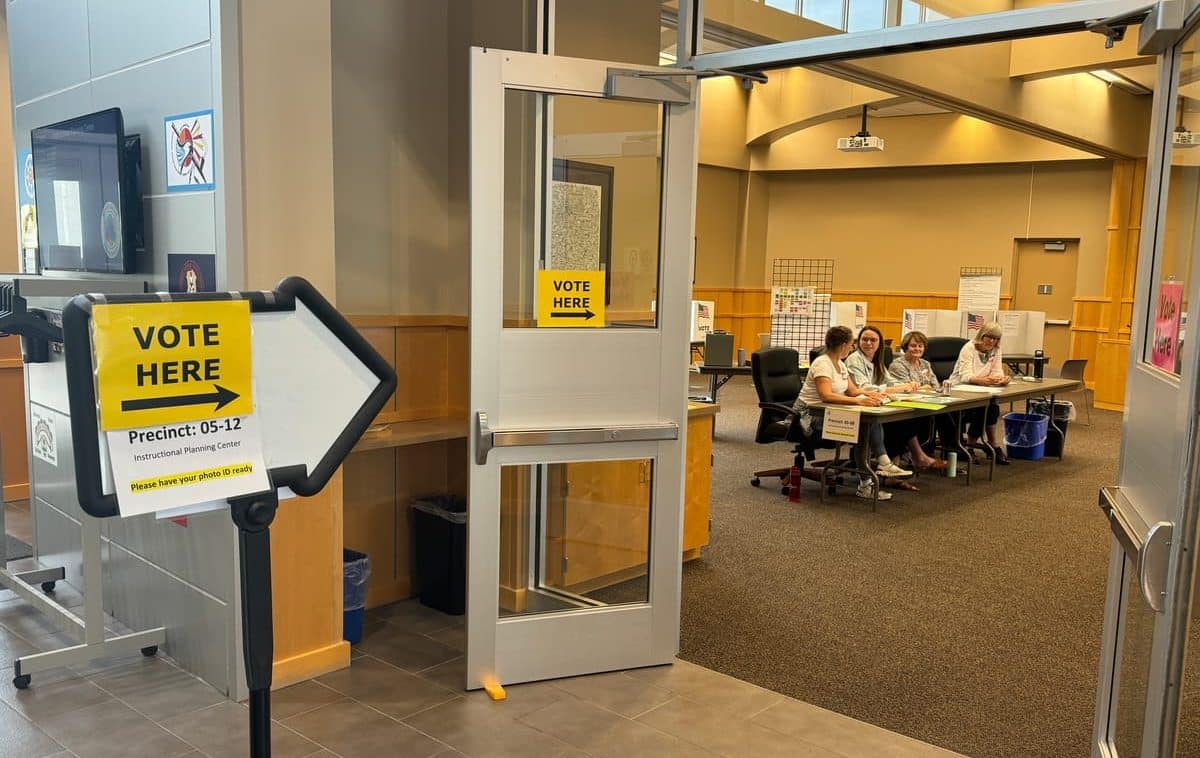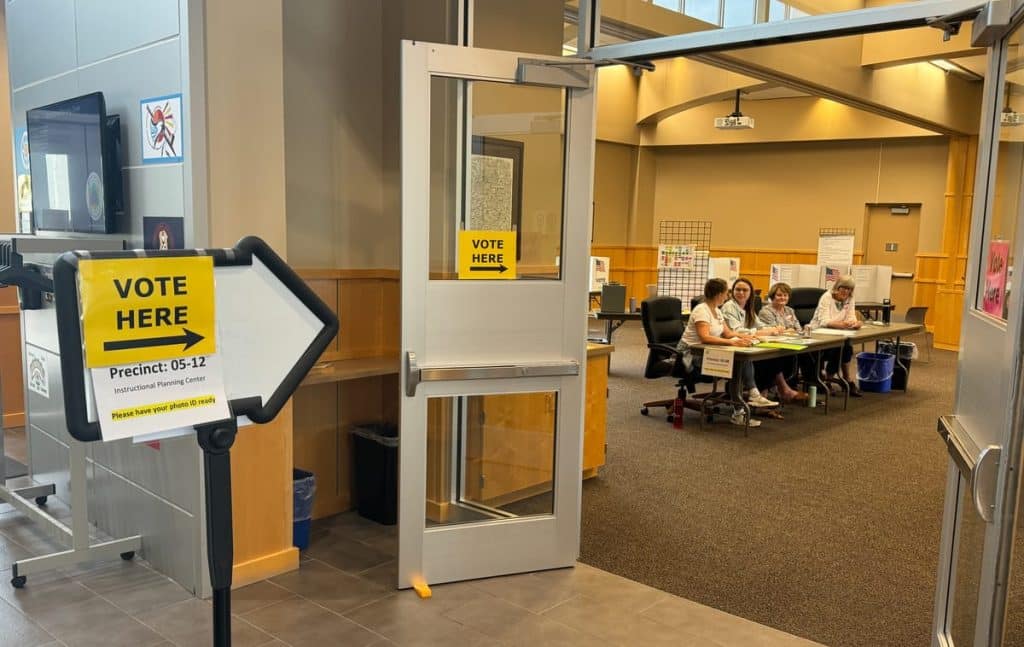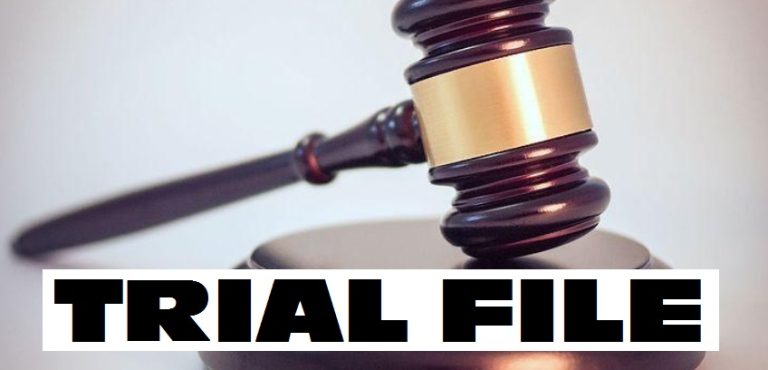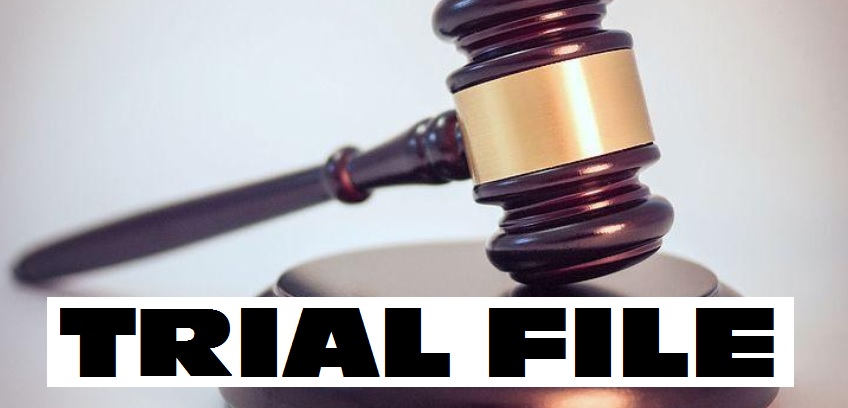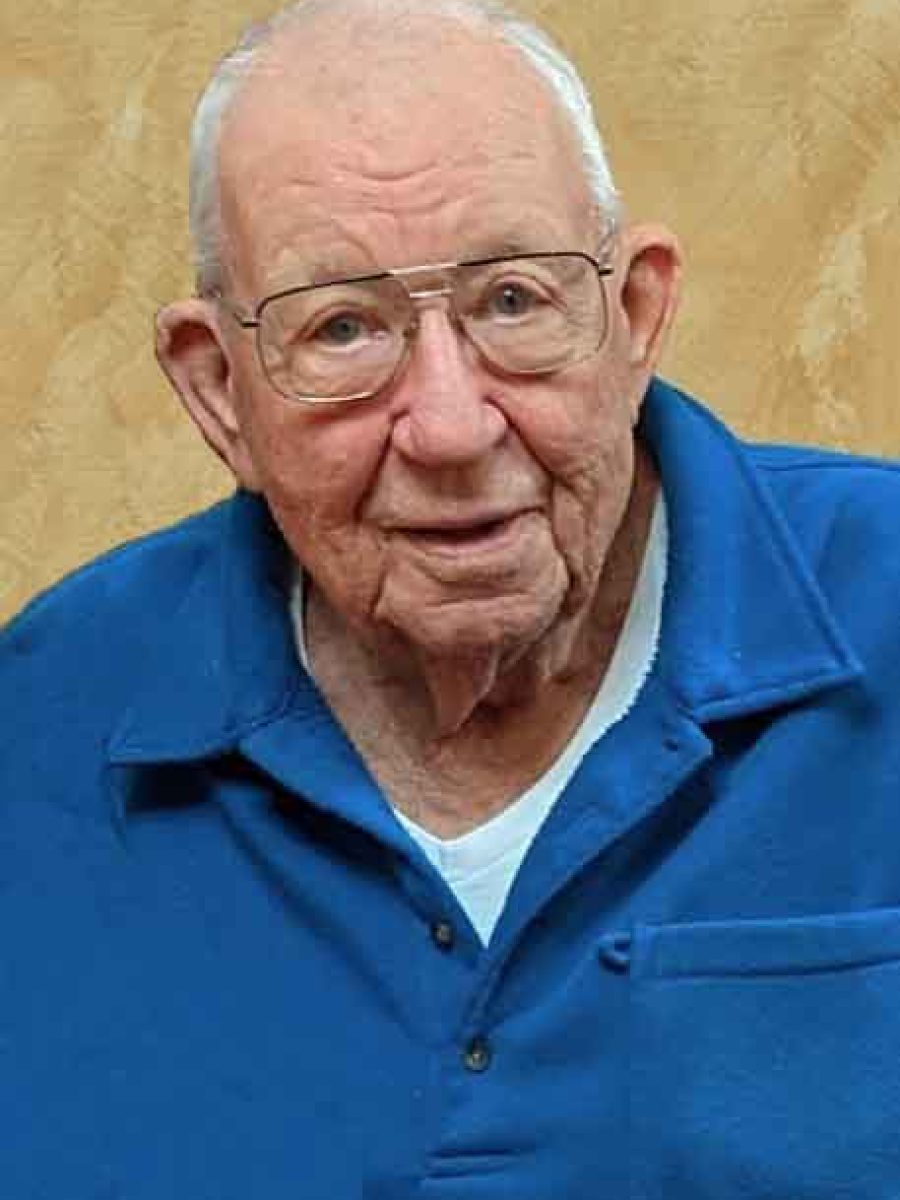SIOUX FALLS, S.D. South Dakotans by a wide margin support a constitutional amendment that would change the way the state conducts primary elections, according to a scientific poll of 500 registered voters co-sponsored by South Dakota News Watch.
The statewide survey, also sponsored by the Chiesman Center for Democracy at the University of South Dakota, showed that 55% of respondents favored the plan to change the state’s election format, with 33% opposed and 12% undecided.
That’s a jump in support from a similarly structured November 2023 poll, which showed 49% supporting the measure, 34% opposed and 17% undecided.
If passed, Amendment H would establish “top-two” primaries for governor, Congress and state legislative and county races rather than political parties conducting separate primary contests.
All registered voters would be eligible to weigh in on which two candidates advance to the general election. Currently in South Dakota, a voter registered with a political party can only vote in that party’s primary. Those registered as non-affiliated can participate in Democratic primaries but not Republican contests.
“The main argument for this amendment is fairness,” said South Dakota Open Primaries chairman Joe Kirby, a Sioux Falls businessman and government reform advocate. “All voters should have an equal voice in electing their representatives and leaders.”
Could open primaries hurt Democrats?
The issue has gained prominence after historically low voter turnout in South Dakota’s June 4 primary elections, which featured 44 Republican legislative primaries in addition to county contests but a lack of statewide engagement. There was one Democratic legislative primary in the state.
Just 17% of registered voters in South Dakota cast ballots in the election, including 10% in the state’s largest county, Minnehaha.
Julia Hellwege, an associate political science professor at USD and director of the Chiesman Center, said Democrats and non-affiliated voters feeling shut out of the process could lead to more willingness to explore alternatives, such as open primaries.
The News Watch poll showed that Amendment H is supported by 82% of Democrats and 59% of independent voters. Republicans aren’t as convinced that a change is needed, with 40% in favor of open primaries, compared to 43% against and 18% undecided.
Female voters support the measure by a margin of 62% to 28%, compared to men, who support it by a margin of 47% to 38%.
The Legislative Research Council estimated that if Amendment H passes, an average of more than 50,000 additional ballots every two years would be needed to meet voter demand for primary elections.
It’s not clear if increased engagement will bring more political balance to South Dakota, where no Democratic candidate has won a statewide election since 2008.
“If the feeling is that a Republican is going to win anyway, (open primaries) create a weird incentive for Democrats and Democrat-leaning independents to vote for a moderate Republican, which actually strengthens one-party control,” said Hellwege. “We already know that Democrats are losing ground and have lost financial support in the state, and this could actually make that worse.”
More robust opposition expected
Mason-Dixon Polling and Strategy conducted the survey May 10-13. Those interviewed were selected randomly from a telephone-matched state voter registration list that included both landline and cellphone numbers. Quotas were assigned to reflect voter registration by county. The margin of error is plus or minus 4.5 percentage points.
With a proposed South Dakota abortion amendment drawing most of the controversy and media attention, open primaries mostly flew under the radar during the signature-gathering and certification process.
One of the detractors was South Dakota Freedom Caucus chairman Aaron Aylward, a state representative from Harrisburg, who told News Watch that the proposal would essentially create “two general elections in South Dakota.”
Early opposition also came from South Dakota Republican Party chair John Wiik and U.S. Sen. Mike Rounds, who told News Watch that “our current primary system has served us well.”
Now that the primaries are over and Amendment H is certified for the ballot, more sparks are expected to fly.
Aberdeen businessman Toby Doeden, whose Dakota First PAC was involved in supporting more conservative Republicans against establishment foes in the primaries, said on Facebook that “it’s time to refocus and re-energize and start working on things like the radical ballot initiatives coming up in November.”
Doeden, who did not respond to an interview request from News Watch, listed the abortion and open primary amendments as his group’s top two targets.
“We would not be surprised to face opposition to our proposal to let all voters vote,” said Kirby, when asked about the Dakota First effort. “Some folks like the system that lets 17% of voters decide the outcomes in South Dakota. We don’t.”
‘We have a big job ahead of us’
Other responses in the News Watch/Chiesman poll revealed serious concerns among South Dakota voters about American democracy and the integrity of election systems.
More than 6 in 10 South Dakotans said they were dissatisfied with how democracy is working in the United States, including 32% who said they were “very dissatisfied.” By party affiliation, 41% of Republicans, 32% of independents and 13% of Democrats said they were very dissatisfied.
As for recent elections, 74% of respondents said they accept the outcome of the 2020 presidential election, with clear party distinctions. While 96% of Democrats and 88% of independents said they accepted President Joe Biden’s win over Donald Trump, 58% of Republicans said they did.
“It’s not uncommon for people of a party label to disagree more with results that don’t align with their preferences,” said Hellwege. “But here we’re seeing that it goes beyond that to where Republicans in particular are less likely to believe not only in the accuracy of election results but in democracy itself as a system.”
Citizen groups such as the South Dakota Canvassing have pushed electoral activism in the state by echoing accusations from conservative media and demanding proof of secure systems, despite no evidence of substantial voter fraud in a state that Trump won in 2020 by 26 points.
Asked in the poll about the most recent election in 2022, 31% of Republicans said they were confident that the results were counted accurately, compared to 97% of Democrats and 75% of independents.
“These are registered voters – that’s the more engaged population,” said Hellwege. “Election administrators, elected officials, practitioners and academics have a big job ahead of us to restore confidence in the accuracy in elections. Rather conclusively, academic research has shown that elections are accurate and free of fraud. We can be confident in the results. And yet even the more engaged registered voters don’t believe us. We need to do more.”
Counties with key races saw turnout
Election canvassing in South Dakota has shown that when voters are invested in a specific issue or contest, they’ll head to the polls.
Part of the reason for the low 2024 primary turnout was that the Republican and Democratic presidential nominees were already decided, and there were no U.S. Senate or U.S. House primaries to spark voter interest.
In 2008, when the Democratic presidential primary race was still roiling between eventual winner Barack Obama and Hillary Clinton, South Dakota’s voter turnout was 37%, including 51% among Democrats.
This year, the June 4 primary had a few examples where local issues on the ballot boosted participation in certain counties:
- In Davison County, where 41% turnout was among the highest in the state, Mitchell voters weighed in on competitive races for mayor and on a bond issue regarding potential improvements to Lake Mitchell. Both election results were close enough to trigger a possible recount.
- Also among the highest-turnout counties was Gregory (39%), where the ballot included an initiated measure on whether elections should be hand counted with paper ballots only, with no electronic voting devices or tabulators. Voters rejected the measure, as did voters in Tripp and Haakon counties, where turnout was 37% and 34%, respectively.
Haakon County auditor Stacy Pinner told News Watch that she was encouraged by the level of civic engagement on the hand-counting issue, and also the outcome.
“The results showed that our citizens are confident in how elections are conducted in Haakon County,” she said.
Three states use top-two primaries
Supporters of open primaries believe that Amendment H can bring that level of civic engagement to candidate primaries for statewide, legislative and county offices.
Though nearly half of states have some form of open primary system, only three currently use a top-two primary such as the one proposed for South Dakota.
California and Washington use top-two primaries (with party labels included) in races other than presidential contests, while Nebraska uses a nonpartisan primary for state legislative races as part of its unicameral system.
But Kirby points out that South Dakota’s primary system is the least accessible for non-affiliated voters among the neighboring states.
“Iowa and Wyoming allow independents to vote in either major party primary,” he said. “And in Minnesota, North Dakota and Montana, voters don’t designate a party when they register. They choose which party primary they want to vote in when they arrive at the polls. Independent voters in all our neighboring states have a meaningful voice in their primary elections. Not so in South Dakota.”
